Best Novel Writing Courses [Become a Bestseller]Are you hoping to write a bestselling novel? If so, you need to learn the major storytelling elements that many bestselling books share. Fortunately, you can learn them online, in just a few days. Below, find my list of the best novel writing courses, with their prices. Whether you're a beginner author or an experienced writer looking to refine your skills, these online classes can help. Hit Writer Course for novelistsMy Hit Writer Course helps you turn your idea for a novel into a scene-by-scene outline, with a compelling plot and unforgettable characters, then provides guidance for writing the scenes, covering dialogue, description, and more. The online video lessons, which apply to any fiction genre, can be finished in just a day, or taken at any pace you'd like. You also get:
Get lifetime access for just $47. Novel writing topics covered in my courseHere are just some of the writing topics you'll learn: MasterClass novel writing coursesThough I teach my own classes, I also encourage you to learn from other writing instructors. MasterClass is a subscription-based, online-education platform I recommend. It offers lessons in various areas, from famous experts. A focus for MasterClass is its novel writing courses. How much does a MasterClass subscription cost?A MasterClass Individual membership costs $10/month, billed yearly. Once you sign up, you immediately gain access to all of its novel writing courses (plus all of its other classes). They offer a 30-day, money-back guarantee. I recommend you browse the MasterClass writing courses on their website. If just one of them seems like a fit for you, sign up for the 30-day trial, which you can take risk-free. List of MasterClass courses for novelistsJames Patterson
Judy Blume
R.L. Stine
Margaret Atwood
Dan Brown
Walter Mosley
Neil Gaiman
David Baldacci
Amy Tan
N.K. Jemisin
Udemy novel writing coursesAnother online-education platform I recommend is Udemy. They offer some great novel writing classes, plus courses in plenty of other subjects. How much does Udemy cost?Udemy courses are offered individually, each with its own price. Many of the writing classes range from about $50 to $150 bucks. You also have the option to get a subscription, which gives you access to 10,000+ courses. You can try it free for 7 days, then the price becomes $16.58/month. List of Udemy courses for novelistsWrite a Bestselling Novel in 15 Steps
Novel Writing Workshop
Your Path To Writing a Page-Turner
Your Writer's Journey: 12 Steps to Write Your Hero's Journey
Skillshare novel writing coursesAnother online-education platform I recommend is Skillshare. They offer various novel writing classes, plus courses in many other subjects. How much does Skillshare cost?Skillshare offers memberships. Once you sign up, you immediately gain access to all of the novel writing courses (plus all of the others). The first month is free. You can try it risk-free. Afterwards, it typically costs $14/month, billed annually, however, they're currently running a promotion for 30% off. Visit the deal page to claim their offer: List of Skillshare courses for novelistsNovel Writing for Beginners: How to Write Your First Draft
Nailing Your Narrative: Using Story Structure To Tell Irresistible Stories
How To Write A Book: Novel Writing
Write a Great Plot 101
Frequently asked questions about novel writing coursesHow can I learn to write a novel?Taking an online writing course can teach you the key elements of a novel. You should also read many books and start writing your own, even if you're not ready to publish anytime soon. The act of writing will help you develop your skills and style. Should I take a writing class before writing a book?Yes. First, learn the key elements of storytelling in a novel writing course. Without understanding them, you may spend months on a first draft that you find unworkable. Learn how to outline a story and structure a scene, then begin your novel, starting with an outline. Which genres are online writing courses for?Most online novel writing courses teach principles that apply to any fiction genre. Other classes cover these principles, while also going into writing advice specifically for one genre, or possibly a handful. If you write in any of the following genres, the courses listed in this article would be a help to you:
What's the difference between MasterClass and Skillshare?MasterClass has about 200 courses, taught by world-famous instructors. Though Skillshare's instructors tend to not be famous, the platform has over 30,000 classes, covering many narrow topics. To learn more, check out my article on Skillshare vs. MasterClass. What's the difference between Skillshare and Udemy?Skillshare and Udemy each offer a subscription option, with access to unlimited classes. A Skillshare subscription costs less than a Udemy one, about $10 per month vs. about $17. However, Udemy has more courses, over 200,000, plus lets you purchase any individually, without a subscription. To learn more, have a look at my post on Skillshare vs. Udemy. Is it worth taking a writing course?Yes. Online writing courses are a very affordable way to learn key storytelling elements. They are much cheaper than college creative writing classes. The small amount of money you'd spend on a course can be earned back very quickly in sales royalties from a book. This post contains affiliate links.
0 Comments
How Long Does It Take To Write A Book? [Tips To Finish Faster]Are you interested in writing a book? Find out how long it'll take you with this simple online calculator. Learn the typical length of a novel and other popular writing formats like non-fiction books, screenplays, novellas, and short stories. Also, I provide five helpful tips for getting your writing project done faster. Complete your book faster with an outline. Download my FREE guide. Typical time to complete a book's first draftA novel has a minimum of 60,000 words, which is also a common length for a non-fiction book. Let's assume you're writing a book of this length, you're able to dedicate 3 days per week to it, and, on average, you can write 3 pages per day. With double-spaced pages and 12-point Times New Roman font, the time to write the first draft of novel would be approximately 6 months. Use my calculator for a custom time for book completionAre you able to write more than 3 days per week? Can you finish more than 3 pages per day? Or maybe you're on a tight schedule and can only write a couple pages a day, once a week? Whatever the case, I put together a simple online calculator to let you estimate the time you'll need to finish the first draft of a 60,000-word book based on your own schedule: How many words on a page in Microsoft Word?Double-spaced with 12-point Times New Roman font, a page in Microsoft Word (or a similar program) contains about 275 words. This value considers blank space for paragraph breaks and dialogue. My calculator factors in a 275-word average per page in its time estimates. How long should your book be?The pages in a physical book are not necessarily laid out the same way as a page in a word-processing program. Pages of published paperbacks often have height and width dimensions that are quite different from other books', making page count a non-standardized measurement for length. Thus, when authors discuss the length of a manuscript with industry professionals, they often use the metric of word count, vs. page count. If you submit your manuscript to a publishing company, an acquiring editor likely won't ask how many pages your book is, but what its word count is. As mentioned, in general, a novel has a minimum of 60,000 words. Novels of 80,000-100,000 words are common. Novels of 120,000 words are surely published each year, however, are quite less prevalent than shorter ones. Not many novels exceed 150,000 words. Non-fiction books tend to be shorter, on average, ranging from about 50,000 to 80,000 words. Sub-genres within fiction and non-fiction have their own word-count ranges. When submitting a manuscript to a publisher, you may be given a required word-count range based on sub-genre and the formats the publishing company tends to market most (ex, e-book, paperback, hardcover, audiobook). In general, publishing companies primarily focused on e-books accept shorter manuscripts than those that invest in physical-copy marketing. Planning to write a longer book?If you're planning on writing a longer book than 60,000 words, just take the total my calculator gives you and multiply it by these numbers:
If you're a first-time author, you should likely avoid writing an extremely long book. Not only can the writing process become cumbersome, but most publishing companies won't even consider a new author's manuscript if it's over a certain length. Aim for at least three drafts of your bookMy calculator provides an estimate of how long you'll need to start and complete a first draft. Though finishing a first draft is a major step, your book will likely need to be polished through at least three drafts. These additional drafts tend to take a shorter time than the first. If you are planning on self-publishing your book, I recommend self-editing through at least three drafts, then finding another editor to review your manuscript before publishing. If you are looking to submit your book to publishing companies, you should definitely self-edit it through at least three drafts so you make a good impression. If your book is accepted, the publisher will then assign it an additional editor before release. Length of shorter fiction
Instead of jumping directly into a long format like a novel, many new writers begin their careers by writing short fiction. In no way is this a requirement, however, it can help you develop your skills before taking on longer projects. Length of a screenplayUnlike books and short fiction, screenplay length is measured in page count, vs. word count. A film producer won't ask you the word count of your screenplay, but rather, the page total. As a general rule, one page in a screenplay equals one minute of run time within a produced film. For example, when filmed, a 95-page screenplay would typically result in a 95-minute movie. Films tend to run between 90 and 120 minutes, and thus, the typical length of a screenplay is between 90 and 120 pages. Yes, a movie can go over 120 minutes, and therefore, a screenplay can go over 120 pages. However, if you're a first-time screenwriter, you may have an easier job convincing people in the film industry to give your script a read if it won't consume a big portion of their day. Thus, I would suggest you keep yours between 90 and 99 pages. Tips to complete your writing project faster#1 - Create a great outlineYour first draft will go a lot smoother if you have a strong sense of what you're going to write each day. An outline will accomplish that. If you happen to be writing a novel, novella, or screenplay, I have a free outline guide you can download, which will help you create compelling story elements in a dramatic sequence... An effective outline will not only help you with your first draft, but your later ones as well. Without an outline, you may reach the end of your first draft when finally realizing that a certain large story element - like a major character or plot sequence - doesn't work. Instead of your second draft being focused on tightening up your descriptions and dialogue, you'll be obligated to pull off a massive structural change, which can take a lot of time. Instead, if you dedicated some time to an outline upfront, you likely would've identified the unworkable story element before beginning your first draft. You'd start thinking of solutions early. An issue that may take a month to fix in a second draft could be resolved in a day in an outline. #2 - Get early feedbackOnce you come up with the premise of your project, you may want to share it with some friends to see what they think. They might point out some potential concerns, causing you to reconsider part of your premise. Reassessing your premise early on is much simpler than doing so after you've started your first draft. The latter could force you into a time-consuming structural edit. Though early feedback from friends can be helpful, if you're writing a novella, novel, or screenplay, you might want to consider partnering with a story consultant, especially if you're struggling to put together an outline you're happy with. A story consultant can help you shape your premise and outline. Unlike editors, who join a project after you've completed multiple drafts, story consultants can join a project early, before the first draft is even started. #3 - Stick to a writing scheduleIf you tell yourself you'll find time "here and there" to work on your first draft, you can easily get sidetracked by other commitments in your life (job, family, etc) and go weeks without writing. Instead, I recommend creating a writing schedule and sticking to it unless a genuine emergency arises. If you have a lot of other commitments in your life, that's okay - maybe your writing schedule will consist of just one hour, one day week. Whatever the case, find slices of time during the week where you can focus. If you happen to work a 9-5 job, possibly you can give yourself a nightly chunk of time to write, say from 8 to 10 PM, Monday through Friday. If your 9-5 job is exhausting and you don't think you'll be able to give your writing project quality focus on weekdays at night, consider a four-hour block of time every Saturday and Sunday afternoon. Whatever schedule you decide on, I recommend using a planning tool like Todoist - which has a free version - to set reminders for yourself and measure your progress. #4 - Organize your writing projectWhether you're writing a fiction or non-fiction project, you'll likely be doing research as you create your outline and/or begin your first draft. Writing software like Scrivener - which offers a free trial - can help you store all your research content for easy access, cutting down on the time you spend looking up images, articles, etc. Scrivener has a bunch of other writing tools that'll help you, such as a nested folder system for adding scenes to relevant sections in your outline. Easily shuffle scene sequencing in your manuscript without spending time manually copying and pasting blocks of texts. #5 - Focus on the story, not grammarThe purpose of your first draft is to get the main elements of your story onto pages. You want to focus on making sure major aspects like story structure, character development, and plot points come together in a workable way. Before writing a book, you should definitely familiarize yourself with the rules of grammar if you don't yet know them in depth. However, when writing, you don't want to spend time noticing and fixing small errors. Yes, there's a time for addressing these issues - during the editing phase after your third (or higher) draft is complete. Not during the first. I recommend using a tool like ProWritingAid - which has a free version - that'll look out for small errors so you don't have to. A ProWritingAid account can also give you helpful writing tips, like stylistic suggestions. Time to start writingNow that you have my tips for completing a first draft of a book, you should begin making your writing dream a reality. Be sure to grab my outlining guide as your first step. This post contains affiliate links. MasterClass for Writing - Should You Try it? [Courses and Reviews]Are you hoping to write a hit book or screenplay? The writing courses on MasterClass can help. Learn writing techniques online, with self-paced video lessons from famous authors and screenwriters. In this article, I provide reviews of recommended MasterClass courses on book and screenplay writing from various instructors. What is MasterClass?MasterClass is an online-education platform that features video courses taught by accomplished people in various fields. Subscribers to MasterClass gain access to all courses on the platform. One of the areas MasterClass covers is writing. Since I'm a fiction writer, in this article, I focus on classes pertaining to books and scripts, however, MasterClass provides narrative writing courses in poetry and journalism too. You can view all of the MasterClass writing courses on its website: Who are MasterClass writing courses for?MasterClass courses were designed with new writers in mind. You should be able to understand the material even if you haven't tried writing a book or screenplay yet. Experienced authors or screenwriters may already be familiar with various topics covered, however, can surely pick up new tips. Certain classes revolve around book writing and others screenwriting. However, most of the underlying concepts the instructors speak about apply to both formats. Some courses go into detail on specific genres - ex, thrillers - however, most of the underlying concepts apply to various genres across narrative writing. If you are an author or screenwriter in any genre - or would like to be someday - all of the classes listed in this article should benefit you in some way. Here's a look at the major topics the courses cover... MasterClass writing topicsMany lessons are aimed at helping writers create an outline for their story. Example topics: Lessons also cover the writing stage after an outline is completed and a writer has moved on to creating scenes. Example topics: Finally, various lessons go over elements of a writing career that aren't directly related to what's written on a page. Example topics:
How much does MasterClass cost?A MasterClass Individual membership costs $10/month, billed annually. Subscribers receive instant access to all courses on the platform, which they can view on one device (ie, computer, tablet, phone, or TV). For $15/month, billed annually, you can access all course content on two devices, known as the Duo membership. The Family membership - which costs $20/month billed annually - lets you access content on six devices. All three plans have a 30-day guarantee. If you aren't certain the platform is a fit for you, I encourage you to sign up and try it. If you'd rather not remain a member, you can easily cancel your subscription for a full refund. MasterClass writing courses and reviewsBelow are overviews and links to MasterClass writing courses I recommend. I looked into classes in areas related to what I write. I am sure many other classes on MasterClass are helpful too. Just because a class isn't on this list, does not mean you should skip it. Possibly you write in an area much different than me (ex, children's books) and other classes may be of interest to you. Once you subscribe to MasterClass, I suggest you browse all the writing classes and take as many as possible with material relevant to you. My list of recommended classes, with reviews... James Patterson MasterClass reviewJames Patterson is the bestselling novelist of thriller series such as Alex Cross and Women's Murder Club. His MasterClass features 22 video lessons, covering topics like:
I recommend this class to anyone interested in writing fast-paced fiction, particularly in the mystery and thriller genres. Though James Patterson is an author, the class would also be helpful for screenwriters. To take the James Patterson MasterClass, just register on the website and you can start immediately: David Baldacci MasterClass reviewDavid Baldacci is the bestselling author of various thriller series. In his MasterClass, you can take 18 video lessons on topics like:
I recommend this class to anyone interested in writing page-turning fiction, especially in the mystery and thriller genres. Though David Baldacci is a novelist, the lessons would apply to screenwriters too. To take the David Baldacci MasterClass, just sign up on the website and you can begin immediately: Malcolm Gladwell MasterClass reviewMalcolm Gladwell is the bestselling author of non-fiction books such as The Tipping Point and Blink. Since Malcolm Gladwell writes in a narrative style, I've included his course on this list, even though his books aren't fiction. He teaches 24 video lessons, on topics like:
I recommend this course to anyone interested in writing narrative non-fiction, or fiction, whether articles, short stories, or books. Screenwriters and documentary filmmakers could benefit from these lessons too. To take the Malcolm Gladwell MasterClass, just register on the website and you can start right away: Aaron Sorkin MasterClass reviewAaron Sorkin is the acclaimed writer of The Social Network, The West Wing, and other films and television shows. His class offers 35 video lessons, on topics such as:
I recommend this course to anyone interested in writing screenplays, teleplays, plays, or novels. To take the Aaron Sorkin MasterClass, just sign up on the MasterClass website and you can start instantly: Neil Gaiman MasterClass reviewNeil Gaiman is a popular writer of short stories, novels, graphic novels, and more. His MasterClass features 19 video lessons, on topics like:
I recommend this course to anyone interested in writing novels, short stories, screenplays, graphic novels, or comic books. Though the class may be particularly helpful to fantasy writers, any fiction writer could benefit from it. To take the Neil Gaiman MasterClass, just sign up on the website and you can begin immediately: Dan Brown MasterClass reviewDan Brown is the bestselling author of The Da Vinci Code and other thriller novels. His course offers 19 video lessons, on topics such as:
I recommend this class to anyone interested in writing mysteries and thrillers, whether in novel or screenplay form. The class could also be helpful to writers in other genres who are hoping to incorporate suspense into their stories. To take the Dan Brown MasterClass, just register on the website and you can start instantly: David Mamet MasterClass reviewDavid Mamet is the acclaimed writer of plays, such as Glengarry Glen Ross and American Buffalo, screenplays, and more. His class features 26 video lessons, on topics like:
I recommend this class to anyone interested in writing screenplays, plays, or novels. To take the David Mamet MasterClass, just sign up on the MasterClass website and you can begin immediately: More recommended MasterClass courses for writersThe MasterClass courses listed above are designed for writers. Some other courses are designed for directors, however, address storytelling concepts a writer could find helpful. Below, I've provided a brief bio of these instructors and links to learn more about their classes: David Lynch is the acclaimed screenwriter and director of the films Mulholland Drive, Blue Velvet, and more. To learn more about the David Lynch MasterClass, visit the course page. Martin Scorsese is the Oscar-winning director of Goodfellas, The Wolf of Wall Street, and other films. To learn more about the Martin Scorsese MasterClass, visit the course page. Judd Apatow is the popular screenwriter and director of the films Knocked Up, The 40-Year-Old Virgin, and more. To learn more about the Judd Apatow MasterClass, visit the course page. Ron Howard is the Oscar-winning director of A Beautiful Mind, Backdraft, and other movies. To learn more about the Ron Howard MasterClass, visit the course page. James Cameron is the Oscar-winning screenwriter and director of The Terminator, Aliens, and other films. To learn more about the James Cameron MasterClass, visit the course page. Try MasterClass freeDo any of the MasterClass courses mentioned in this article seem like they could help you? If so, I suggest you sign up for MasterClass and start watching the lessons. You have a 30-day money-back guarantee. If the platform isn't right for you, easily cancel without losing a dime. To begin your MasterClass free trial, just visit the website and select "Sign Up": To learn more about MasterClass, check out my post on how it compares to Skillshare. This post contains affiliate links. Use These 10 Literary Devices to Tell an Awesome StoryIf you're writing a book, screenplay, or short story, you want to captivate your audience with your characters and settings, build suspense, and deliver strong emotional payoffs. Literary devices are tools that can help. Though plenty of literary devices exist, these 10 are particularly useful in fiction and narrative non-fiction. Check out these examples and tips for using them to tell an awesome story. Want to write an awesome story? Download my FREE outlining guide. What is a literary device?A literary device is a technique writers can use to make stories more engaging. These tactics can create suspense, evoke emotion, set up a plot twist, and more. Alliteration, symbolism, and foreshadowing are examples of literary devices. 10 literary devices for your storyBelow are definitions of 10 powerful literary devices for your book, screenplay, or short story. Click the "Learn More" links to see examples of each literary device and tips for applying it to your story. #1 - SymbolismSymbolism is when an element of your story - like a character, setting, or object - represents an idea. The represented idea tends to play a significant role in the story's character development, plot, or theme. For instance, in a prison story, grass might be a symbol for freedom. Learn More #2 - ToneTone is the attitude a writer takes toward the events in a story. Though characters may have distinct attitudes, the literary device tone just refers to the attitude of the writer. Some examples of tone are optimistic, comedic, and regretful. Learn More #3 - MoodMood is the overall feeling of a scene. Chaotic, warm, and sad are examples of moods. One story can have many moods, since different scenes can create different emotional responses from an audience. Learn More #4 - ImageryImagery is a literary device writers use to connect with any of the audience's five senses: sight, sound, smell, touch, and taste. Imagery is often used in the descriptions of characters, settings, and plot events. Learn More #5 - MetaphorA metaphor falsely asserts that one thing is another while creating a true, symbolic comparison. "The office is an igloo" is an example of a metaphor. Learn More #6 - PersonificationPersonification is the granting of human qualities to non-human elements in a story, like vehicles, houses, and even concepts, such as hope or doubt. Learn More #7 - ForeshadowingForeshadowing is a literary device writers use to allude to future events in a story. Two kinds exist: (1) Direct foreshadowing states a story event is to come (2) Indirect foreshadowing gives evidence of an event the audience does not anticipate. Learn More #8 - Dramatic ironyDramatic irony is a literary device in which a writer gives information to the audience that a character, or multiple characters, is unaware of. The tactic can build suspense. Learn More #9 - MotifA motif is a repeating element in a story that plays a strong role in the story's theme. Motifs can be abstract ideas, like triumph or deceit. They can also be parts of your story's physical world, such as buildings, objects, colors, and noises. Learn More #10 - AlliterationAlliteration is the repetition of a consonant sound at the start of two or more close-together words, as in "warm weather," with "w" the repeating sound. Learn More Why use literary devices?Here are just some storytelling components literary devices can help you with:
What genres use literary devices?Literary devices are used across fiction and narrative non-fiction. Some examples of genres that use literary devices:
How to use literary devicesLiterary devices should serve the story you're telling. Once you have an idea of your characters and your plot, and you begin writing your first draft, you'll need to accomplish various tasks to make any scene work. For instance, let's say your main character in a thriller is running from three gunmen in a scene. For this scene to work, a task of yours could be making the audience fear for your protagonist's life. A combination of literary devices can be applied to accomplish that task. You can use dramatic irony to make your protagonist unaware of the danger lurking around the corner. Once the protagonist sees the gunmen, you can leverage mood to create a feeling of desperation. You can also apply imagery to show the physical effects of panic, like sweat and an accelerating heartbeat. Think of literary devices like specialized tools. Let your story tasks dictate when and how you apply these tools. What to avoid when using literary devicesAs stated, the writing tasks you need to accomplish to make a scene work should determine what literary devices you use - avoid the opposite approach, ie, deciding you want to use a certain literary device and then bending the purpose of a scene just so the device can fit. You also want to avoid literary devices drawing attention to themselves. They should help your scenes flow, not cause the audience to focus on the device. Certain devices, like alliteration, can draw attention to themselves if used too often. Other devices, like tone, can draw attention to themselves if shifted through a story. Once you gain a deeper understanding of the 10 literary devices outlined above (with the "Learn More" links), you should have a good idea of how to apply them to your story in a natural way. Captivate Your Readers With Imagery: Definition, Examples, and TipsIf you're writing a book, screenplay, or short story, you want to draw your readers deep into the world of your story. Imagery is a powerful literary device you can use to give your readers a vivid experience of your scenes. In this article, I provide the definition of imagery, examples, and tips for applying it in your story. Want to write an awesome story? Download my FREE outlining guide. What is imagery in writing?Imagery is a literary device in which writers engage readers via language that evokes any of the five senses: sight, sound, smell, touch, and taste. Imagery is often applied to the descriptions of characters, settings, and plot events. Why is imagery important?Imagery is a literary device that creates a sensory connection between the reader and the physical world of the story. Scenes become more immersive because of this connection. After a reader finishes a scene, an effective use of imagery can make him say, "I felt like I was there." The writing technique can also build empathy with characters, a key part of storytelling. If a reader is able to sense what a character is experiencing, the reader can better empathize with that character. Below are two examples of a plot event, the first described without an emphasis on imagery, and the second with an emphasis on it. Which do you feel is stronger? Example A Becca walks through the woods to meet her friends at the campsite. She believes a killer is following her, so she takes off running. She runs for about a mile, reaches a street in a small town, and hides out in a diner. Example B Becca walks through a dark forest toward the campsite. Footsteps thud behind her. She looks over her shoulder, but sees nothing but the gnarled barks of trees. She heard a rumor about some weirdo who lives out here, but figured it was just an urban legend. She keeps walking, the November air cold on her neck. The footsteps behind her return. She takes off running through the close-together trees. Her heart pounds. The branch of a pine tree hits her in the face. She spits a few pine needles out of her mouth. Up ahead, the lights of a small town glisten beyond the evergreens. She dashes onto the street and rushes into the first building she sees, a diner. The place smells like apple pie. However, Becca is too nervous to eat. Shaking and huffing, she sinks onto a stool at the counter. The 5 types of imagery in writingThough the word imagery relates to sight, as a writing technique, imagery does not just apply to the visual - it relates to all five senses. Below are examples of the five types of imagery in writing: Visual imageryWith visual imagery, a writer uses language that lets readers imagine specific images. For example: Over the silhouette of the mountaintops, a bolt of lightning rips through the sky. The rain, coming down at a sideways angle, smashes the body of Bill's car. Sound imageryWith sound imagery, a writer uses language that lets readers imagine specific sounds. For example: Nick swings the crowbar into the department store's window. The glass shatters. Shards shower down on the pavement at his feet. He runs inside while the alarm wails. Scent imageryWith scent imagery, a writer uses language that lets readers imagine specific scents. For example: Kayla looks away from the TV. She sniffs the air. It smells like burnt wood. She swings open her bedroom door. The scent grows stronger. She notices smoke. Taste imageryWith taste imagery, a writer uses language that lets readers imagine specific tastes. For example: Gary watches the waiter carry over the entrees at his favorite restaurant, Forge Steakhouse. He grabs his fork and knife and looks down at the twenty-four-ounce porterhouse set in front of him. He slices off a piece. It warms his entire mouth. He bites into it, the juice seeping out. Tactile imageryWith tactile imagery, a writer uses language that lets readers imagine specific sensations of touch. For example: The bullet tears through Scott's thigh. The hot metal shreds his muscle. His entire leg flames with pain. Tips for applying imagery in your writingImagery can enhance almost any scene. However, you need to be careful about when and how to apply it. Here are some tips to follow: #1 Avoid excessive adjective useImagery is a type of descriptive writing. When trying to be descriptive, some writers make the mistake of loading their sentences with adjectives. Feel free to use adjectives in your imagery, but don't overdo it. A combination of vivid nouns and verbs can often make a point stronger, and in fewer words, than a series of adjectives. #2 Use more imagery for more important story elementsImportant characters, settings, and plot events warrant more detailed descriptions - and thus, more imagery. When you describe a setting that will go on to play a major role in your story, feel free to go into detail about it. For instance, let's say you're telling a crime story and the villain and his crew often hang out at his auto body. The place will later serve as the setting for the climactic shootout. You should go into specifics about things like the sounds of the mechanics' machines, the splotches of grease on the floor, the taste of the candy in the vending machine out in the hallway. In the same story, your protagonist happens to stop at a coffee shop. The shop is only in one scene, just briefly. Spending five paragraphs describing the coffee shop wouldn't be warranted - the setting isn't important enough to the overall story. #3 Vary the types of imageryGiving the reader a visual sense of a scene is critical. Thus, you'll likely find yourself using visual imagery more than the other kinds. That's okay. However, be sure to work in the four other types. That being said, you never want imagery to feel forced. Let's say you've used all the types of imagery in a certain scene except taste. If the scene doesn't call for a character to be tasting something, don't worry about getting in taste imagery. You should never create additional imagery at the risk of your story events feeling unnatural. What genres use imagery?Imagery is used across fiction and narrative non-fiction. Some examples of genres that use imagery:
Want more writing advice? |
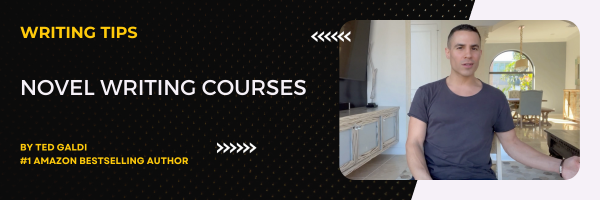


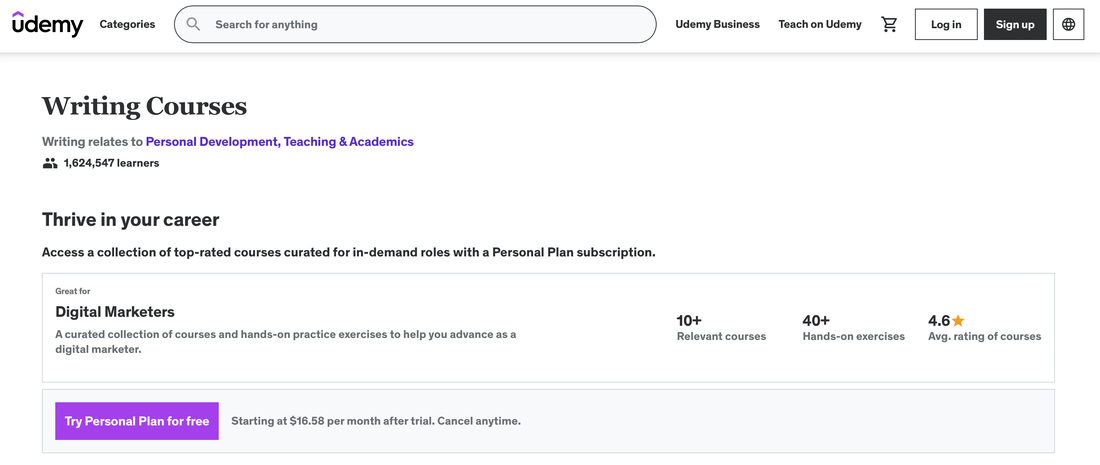
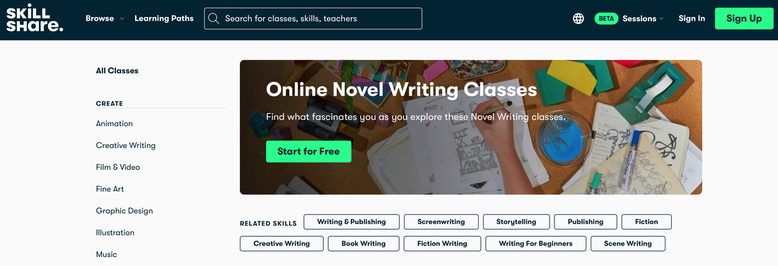
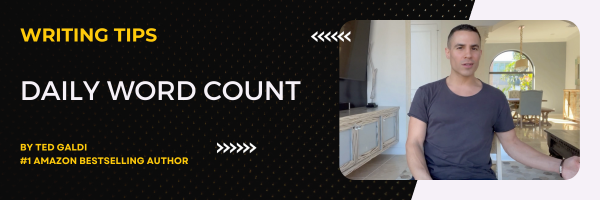
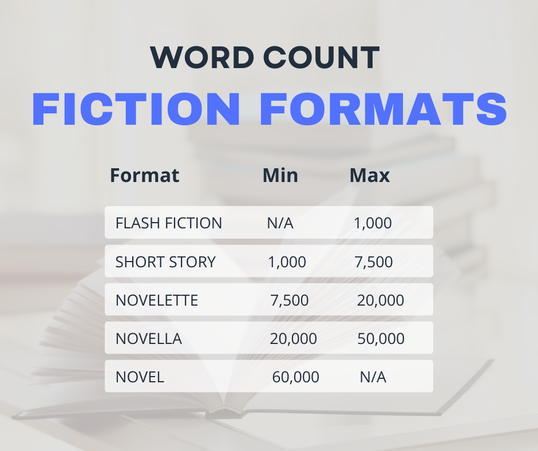
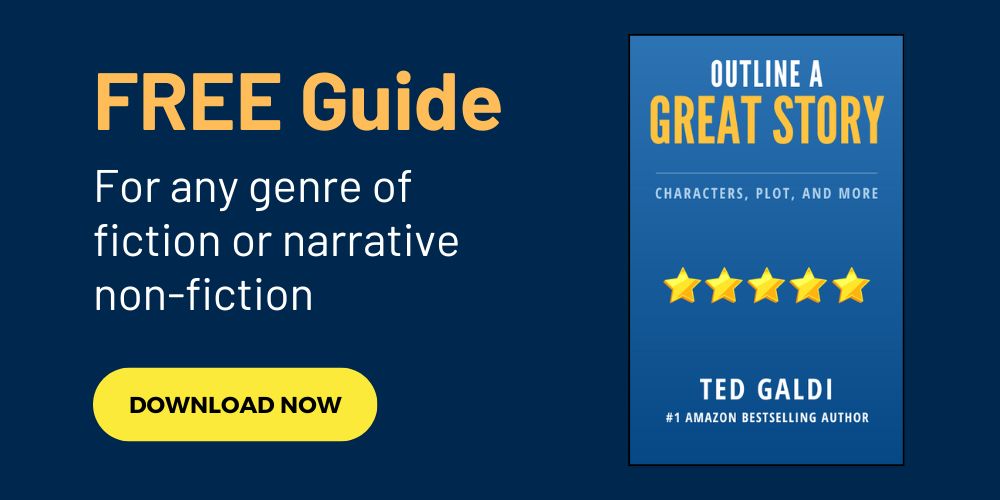
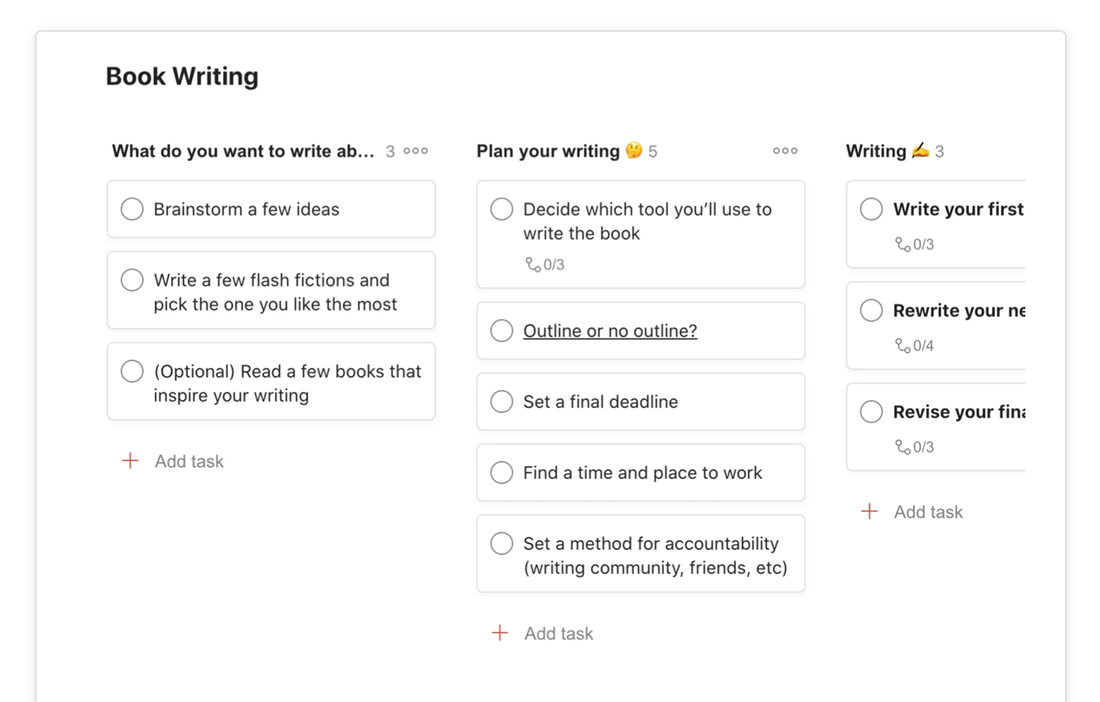
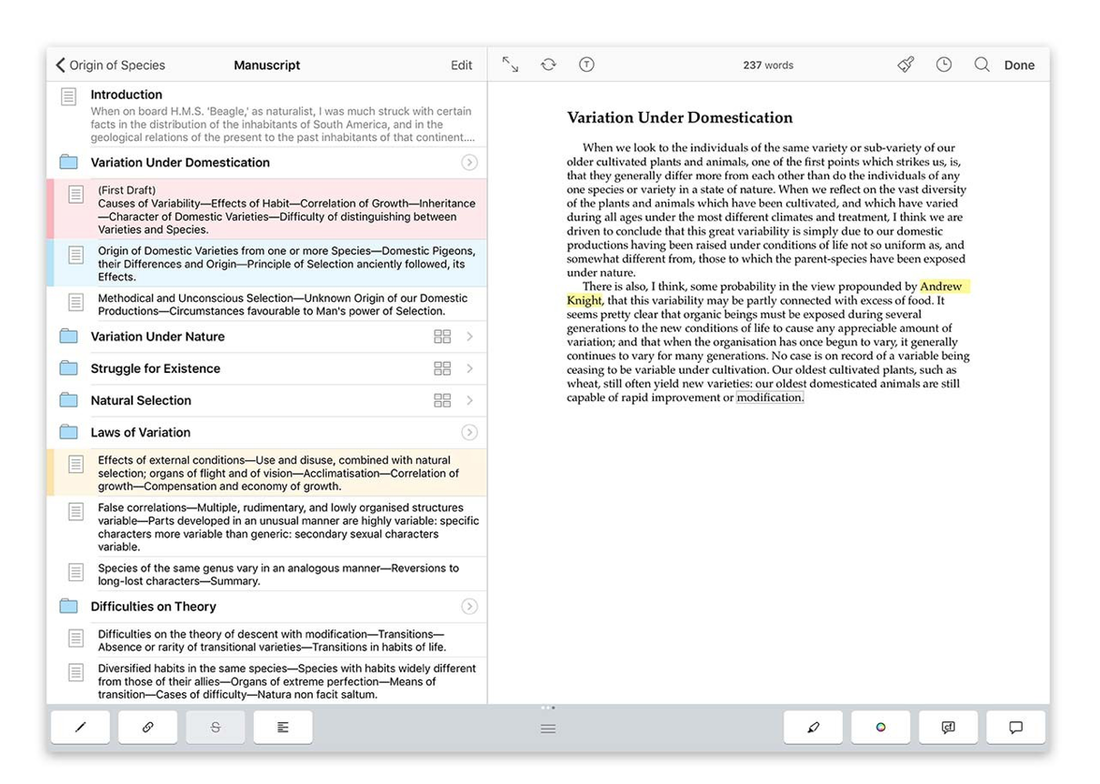
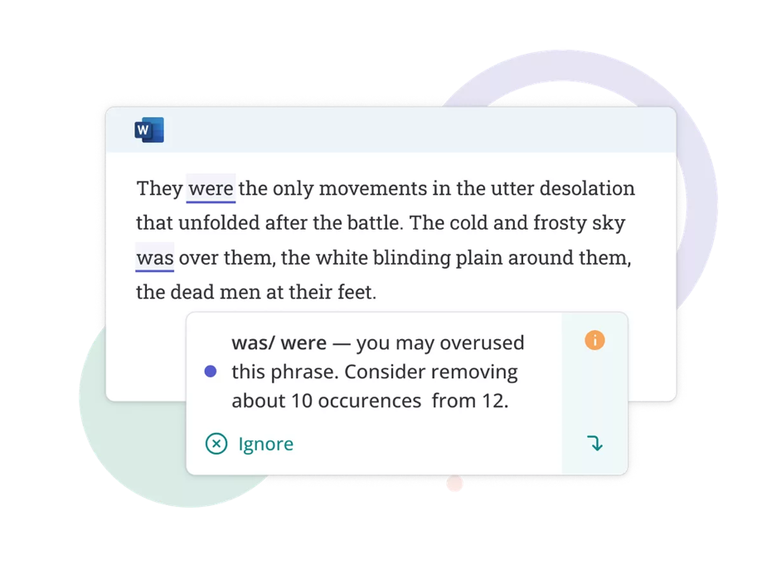

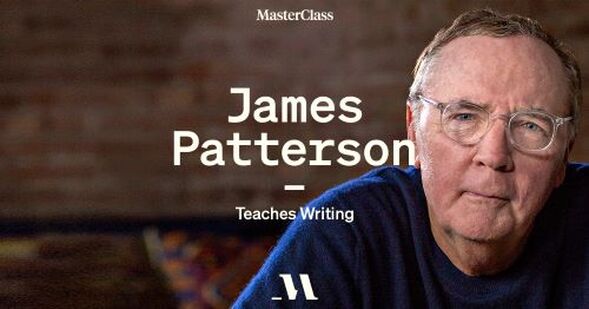
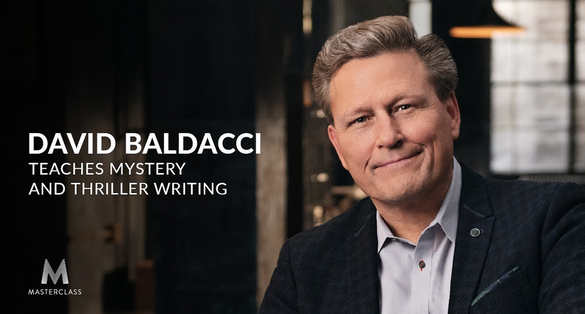


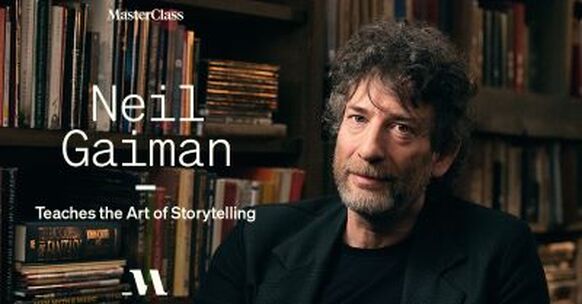
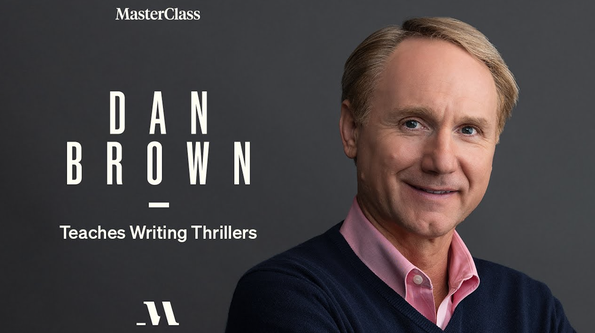

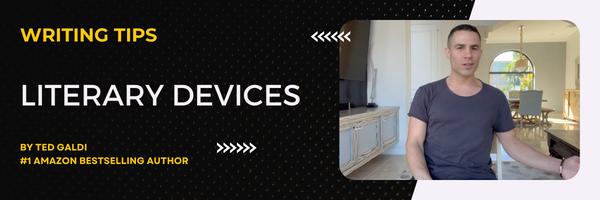
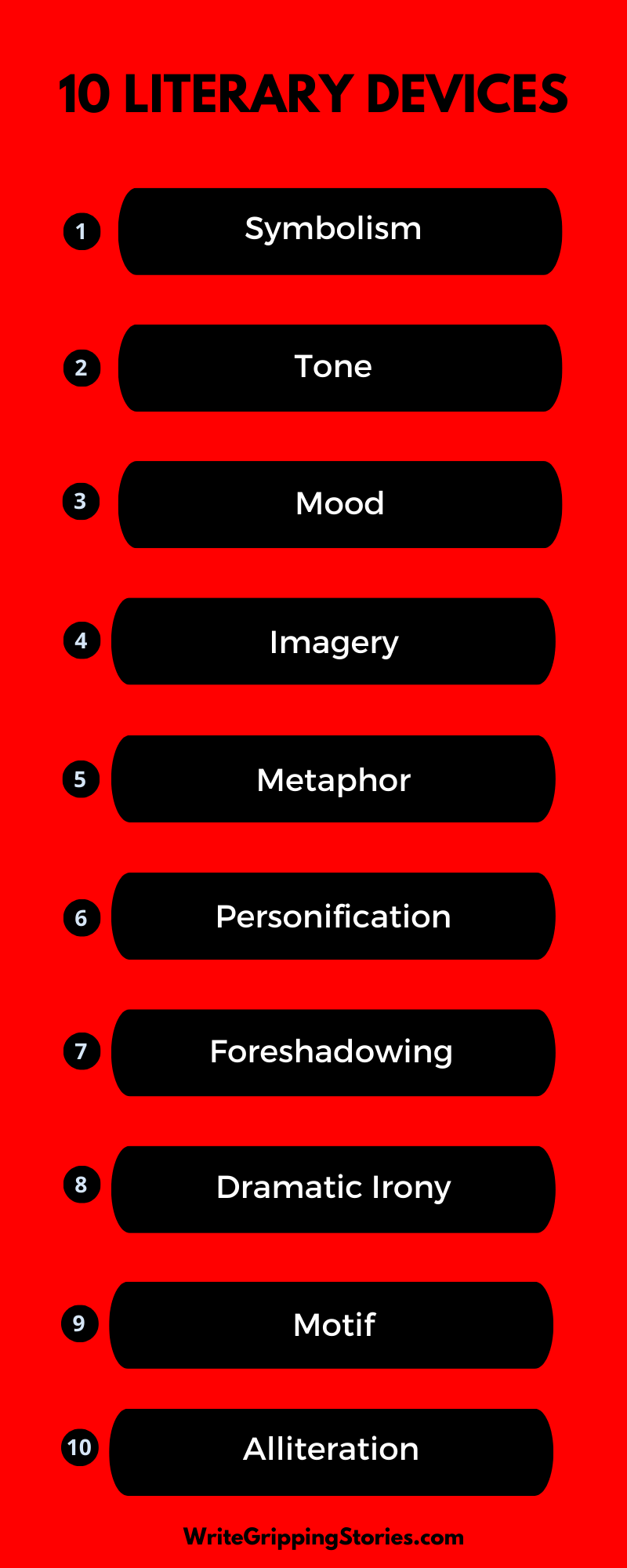
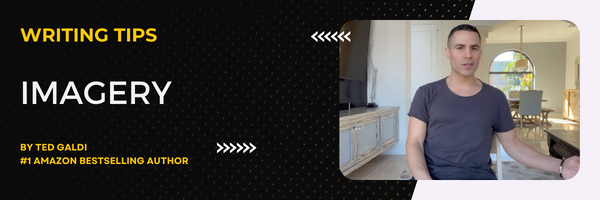
 RSS Feed
RSS Feed